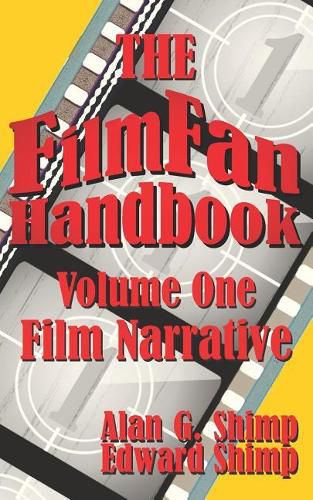Readings Newsletter
Become a Readings Member to make your shopping experience even easier.
Sign in or sign up for free!
You’re not far away from qualifying for FREE standard shipping within Australia
You’ve qualified for FREE standard shipping within Australia
The cart is loading…






This is the age of the film fan. It is now the privilege of fans to control the medium with social media, access to streaming content, the formation of communities with like-minded viewers, and even the ability to redefine what a film is.This book empowers film fans to take ownership of the motion picture experience and extract the greatest enlightenment and enjoyment. While other books take an academic look at film theory or contain endless lists and trivia, this four-volume set is written in easy-to-understand language with clearly defined examples.Volume One of The Film Fan Handbook explores film narrative - the underlying structure of the stories seen on the big screen. It begins by examining the distinction between narrative, story, and plot. It looks at the history of storytelling and myth, as well as the concept of the rota fortunae. It then goes on to use Aristotle’s six dramatic elements as a framework to explore the structure of narratives. It looks at plots, plotlines, anagnorisis, peripeteia, inciting incidents, climaxes, MacGuffins, the use of a deus ex machina, film’s three-act structure, and the inaccuracy of Freytag’s pyramid. It covers sequels, prequels, spin-offs, extended movie universes, franchises, reboots, revivals, remakes, and serials. It examines dialogue, exposition, narration, and improvisation. It distinguishes themes from genres and motifs. It looks at the different types of heroes, anti-heroes, buddy pictures, concept films, protagonists, antagonists, and contagonists. It distinguishes stereotypes from archetypes. It explores tone, rhythm, and melody. It distinguishes diegetic from non-diegetic sound. It considers the effects of editing, screen size, mise en scene, focus, presentation, opsis, design, and spectacle. Finally, it explains how film fans can leverage that information to better understand film, as well as engender discussions, at film festivals, clubs, or other gatherings. While this volume explores Film Narrative - the art of storytelling, Volume Two looks at Filmmaking - the process of manufacturing the experience, Volume Three is a survey of Film Culture - the social framework in which film is created and viewed, and finally, Volume Four examines Film Control - the business of film.
$9.00 standard shipping within Australia
FREE standard shipping within Australia for orders over $100.00
Express & International shipping calculated at checkout
This is the age of the film fan. It is now the privilege of fans to control the medium with social media, access to streaming content, the formation of communities with like-minded viewers, and even the ability to redefine what a film is.This book empowers film fans to take ownership of the motion picture experience and extract the greatest enlightenment and enjoyment. While other books take an academic look at film theory or contain endless lists and trivia, this four-volume set is written in easy-to-understand language with clearly defined examples.Volume One of The Film Fan Handbook explores film narrative - the underlying structure of the stories seen on the big screen. It begins by examining the distinction between narrative, story, and plot. It looks at the history of storytelling and myth, as well as the concept of the rota fortunae. It then goes on to use Aristotle’s six dramatic elements as a framework to explore the structure of narratives. It looks at plots, plotlines, anagnorisis, peripeteia, inciting incidents, climaxes, MacGuffins, the use of a deus ex machina, film’s three-act structure, and the inaccuracy of Freytag’s pyramid. It covers sequels, prequels, spin-offs, extended movie universes, franchises, reboots, revivals, remakes, and serials. It examines dialogue, exposition, narration, and improvisation. It distinguishes themes from genres and motifs. It looks at the different types of heroes, anti-heroes, buddy pictures, concept films, protagonists, antagonists, and contagonists. It distinguishes stereotypes from archetypes. It explores tone, rhythm, and melody. It distinguishes diegetic from non-diegetic sound. It considers the effects of editing, screen size, mise en scene, focus, presentation, opsis, design, and spectacle. Finally, it explains how film fans can leverage that information to better understand film, as well as engender discussions, at film festivals, clubs, or other gatherings. While this volume explores Film Narrative - the art of storytelling, Volume Two looks at Filmmaking - the process of manufacturing the experience, Volume Three is a survey of Film Culture - the social framework in which film is created and viewed, and finally, Volume Four examines Film Control - the business of film.